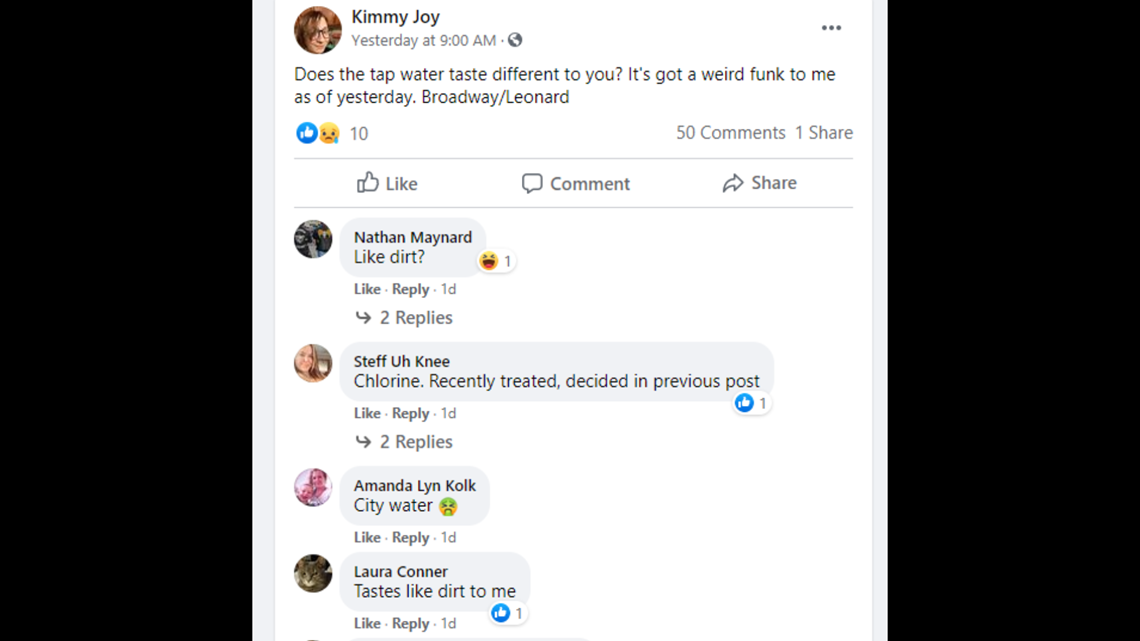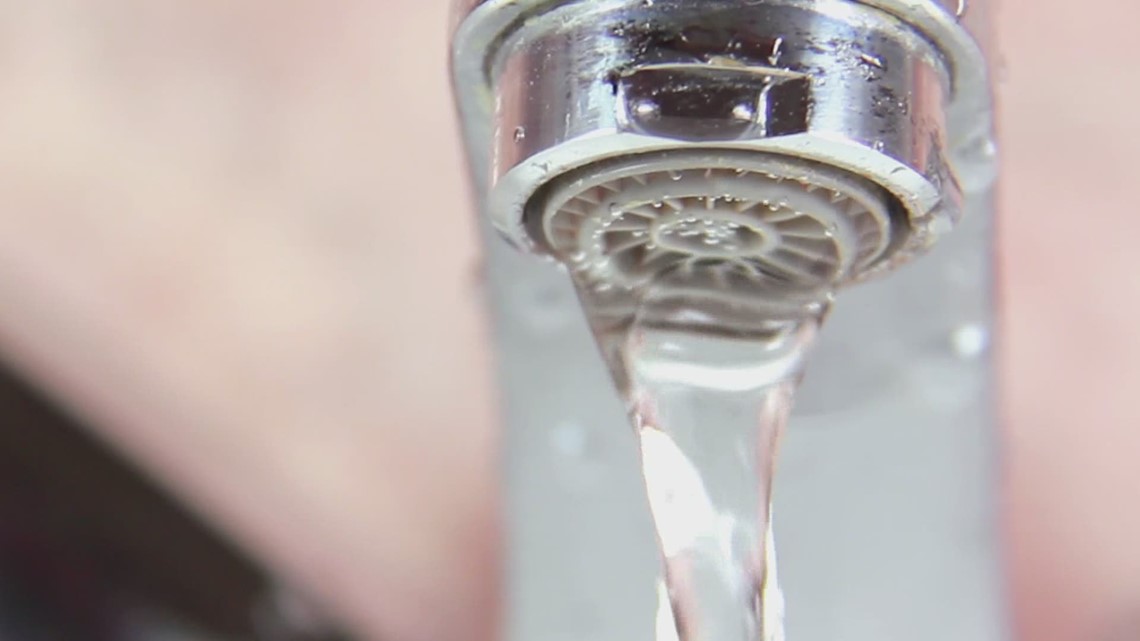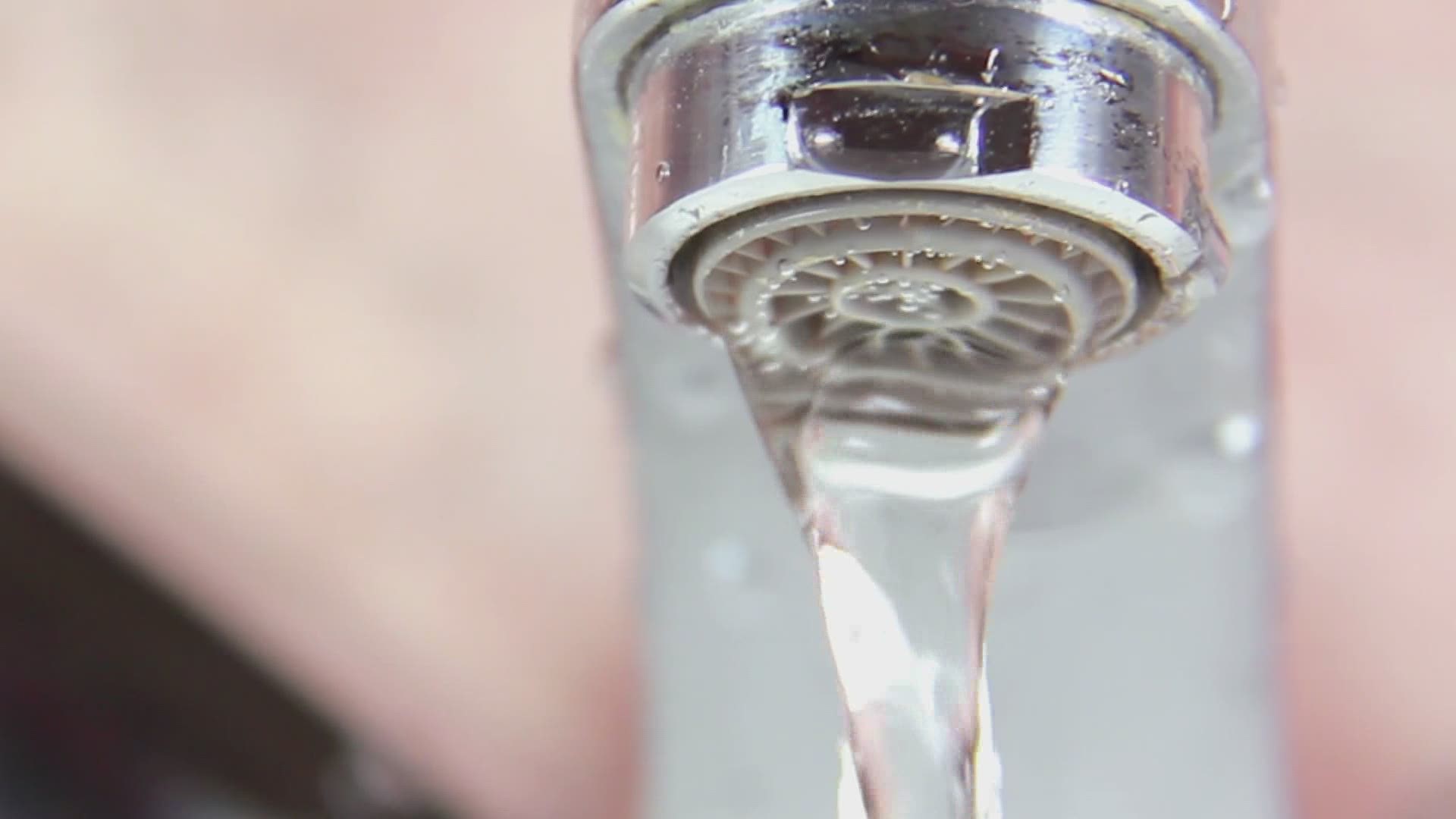GRAND RAPIDS, Michigan — It all started Sunday morning for West Grand Neighbor, Kimberly Snyder, as she woke up to bitter tasting tap water.
"I woke up drinking out of this water bottle and I was like I have to wash this. It tasted moldy," she said. "I get a glass bottle out of the fridge and the water tasted the same."
She then tried next door to see if maybe the pipes were 'funky.' When that water tasted poorly, she asked about it on the We Are Westsiders Facebook group and got a large response.


Neighbors agreed that the taste and smell of their city water was off.
The complaints even reached the John Ball area. Some neighbors said they called 311 to get answers. One saying they were told that "activated carbon treatments" was the source of the issue.
Activated carbon treatments are added in the summer months to remove the taste that algae, growing during warmer months in the lake, often leaves in the water.
The city water system manager, Wayne Jernberg, said that wasn't the case.
"We actually stopped our carbon treatments Sept. 28," Jernberg said. "The carbon helps filter out any musty smell or taste periodically that can happen when the water gets warmer. The colder the water gets the better the water quality is so we don't deal with that really anymore."
Jernberg said that they have not received any request sent to their lab to go out and investigate any additional water quality complaints in the past three to four weeks.
Besco Water Treatment Incorporated certified water specialist, Gerritt Muizelaar, says that the smell and taste issues within city water are extremely common.
"Odors come in a huge variety and quite often it's non-harmful bacteria associated with the odor. There are a lot of bacteria that we might find in water that are non-harmful." Muizelaar said. "Bacteria is looking for nutrient to feed off of in the water and a lot of time it naturally gases off in the water and that dissolves into the water, now you have an odor coming out of your tap."
Some that are known to be harmful are e.Coli or Caliform, but those are rare and road work is the main cause of agitating the plumbing system that holds city water according to Muizelaar. The easiest way to fix both short and long term city water problems from his perspective is a water filtration system.
"The main thing is not to panic," said Muizelaar. "There is plenty of options for filtration if necessary. Sometimes these things will pop up short term and then they are gone."


13 ON YOUR SIDE took Snyder's water sampling to get tested for free at Gordon's Water Treatment Facility where it got both a hardness and a conductivity test.
The hardest city water can get out of Lake Michigan is in the 8-11 drop range. The test is administered by taking a sample of water and dropping 1-11 drops of a buffer into it until it changes color.
When the test was administered to a 5 milliliter test sample of Snyder's water, from the West Grand Neighborhood, it didn't change color until drop 11. That means the water is pretty hard.
During the hardness test, VP of Gordon's Water Treatment, Tom Duisterhof described how the hardness of water comes from how much rock is dissolved inside of it. That is why extremely hard water for some, may taste like dirt or even metal.
"People will say I want to drink hard water because it has more minerals in it, well it does. It has that but the problem is it has a lot of other stuff in it that you can't see taste or smell. Except in this case where you have a citizen saying I have strange tasting water," Duisterhof said.
For the conductivity test, in Snyder's sample there were 157 parts per million elements detected in the water. That's compared to only 5 parts per million found after going through a water filtration system like Gordons.


That is why some people prefer bottled water to tap.
Duisterhof said hard water is hard on water appliances and on bodies. Making it harder to clean clothes, dishes, and hair because the dissolved rock in the water is fighting with the cleaning chemicals making it hard to lather things up.
"Either you end up with soap curds, which is a hardness and soap combining or the rock physically settles out. It's really hard on water heaters and dish washers cause you end up with a measurable thickness building up," he said.
His solution is a water filter, which lots of people also call water softeners. He says the problem with city water is usually always going to go back to the infrastructure.
"Our municipalities do a pretty darn good job at the plant the problem is they have miles of pipeline between their plant and my faucet and your faucet, so it gets difficult to maintain the integrity of that purified water," said Duisterhof.
Gov. Gretchen Whitmer just released over $500 million in aid to attempt to fix that issue. With many of the states pipes being reported as over 70 years old and some are even still made from lead.
Now, if anyone is tasting chlorine in their water that is due to city water treatments. The city puts chlorine in the water to kill certain types of bacteria, but it only puts in a limited amount. If there was just a fresh shot of chlorine put out, most people will taste it.
To get your drinking water tested you can go to over eight water testing facilities throughout the city of Grand Rapids where they might send your water out to a treatment facility to tell you exactly what particles are inside of your water. That service usually comes at a cost.
To contact Leona with any story ideas. You can reach her at LeonaDunn@13onyourside.com
►Make it easy to keep up to date with more stories like this. Download the 13 ON YOUR SIDE app now.
Have a news tip? Email news@13onyourside.com, visit our Facebook page or Twitter. Subscribe to our YouTube channel.

